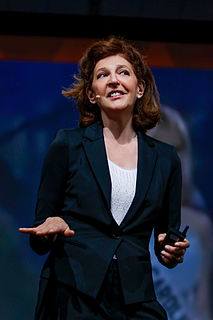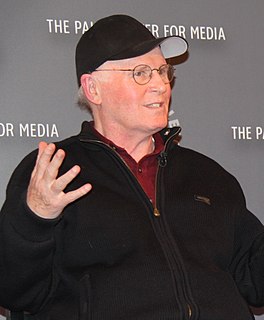A Quote by Eric Weiner
Every country has its cocktail-party question. A simple one-sentence query, the answer to which unlocks a motherlode of information about the person you just met.... In Switzerland it is, Where are you from? That is all you need to know about someone.
Related Quotes
If you had a system that could read all the pages and understand the context, instead of just throwing back 26 million pages to answer your query, it could actually answer the question. You could ask a real question and get an answer as if you were talking to a person who read all those millions and billions of pages, understood them, and synthesized all that information.
Children know that if they have a question about the world, the library is the place to find the answer. And someone will always be there to help them find the answer-our librarians. (A librarian's) job is an important one. Our nation runs on the fuel of information and imagination that libraries provide. And they are in charge of collecting and sharing this information in a helpful way. Librarians inform the public, and by doing so, they strengthen our great democracy.
In the split-second before someone prepares to answer a question, he will consciously or subconsciously evaluate what the best possible answer might be. For a truthful person, the best possible answer might omit some information. It might have a few extraneous details. But it will still offer the information requested.
Some people spend their entire lives thinking about one particular famous person. They pick one person who's famous, and they dwell on him or her. They devote almost their entire consciousness to thinking about this person they've never even met, or maybe met once. If you ask any famous person about the kind of mail they get, you'll find that almost every one of them has at least one person who's obsessed with them and writes constantly. It feels so strange to think that someone is spending their whole time thinking about you.
You have this certain about of responsibility to play a fictitious character and you have a script that's guiding you and the other information of the custom department's choices, and the set department, "Where are you," and all those other pieces of information but you have to cull from your imagination the answer to all the unasked questions. And with a real person, there's someone to get that information from, perhaps.
Have you ever heard the wonderful silence just before the dawn? Or the quiet and calm just as a storm ends? Or perhaps you know the silence when you haven't the answer to a question you've been asked, or the hush of a country road at night, or the expectant pause in a roomful of people when someone is just about to speak, or, most beautiful of all, the moment after the door closes and you're all alone in the whole house? Each one is different, you know, and all very beautiful, if you listen carefully.
And uh, so, I'm running for a reason. I'm answering this question here and the answer is, you cannot lead America to a positive tomorrow with revenge on one's mind. Revenge is so incredibly negative. And so to answer your question, I'm going to win because people sense my heart, know my sense of optimism and know where I want to lead the country. And I tease people by saying, "A leader, you can't say, follow me the world is going to be worse." I'm an optimistic person. I'm an inherently content person.
[Malcolm Fraser] went straight from Melbourne Grammar to Oxford. And he would have been a very lonely person, and I think he probably met a lot of black students there who were also probably lonely. I think he formed friendships with them, which established his judgement about the question of colour. That’s my theory. I don’t know whether it’s right or not, but that’s what I always respected about Malcolm. He was absolutely, totally impeccable on the question of race and colour.
Research is necessary. However, you need to make sure you don't fall into its trap. You need to have time left for writing. To avoid the trap, I just throw myself into the abyss while at the same time being aware that if I'm dealing with information I don't know enough about, I have to go to someone and talk about it.
[My father] impressed upon me from the first, that the manner in which the world came into existence was a subject on which nothing was known: that the question, "Who made me?" cannot be answered, because we have no experience or authentic information from which to answer it; and that any answer only throws the difficulty a step further back, since the question immediately presents itself, "Who made God?



































